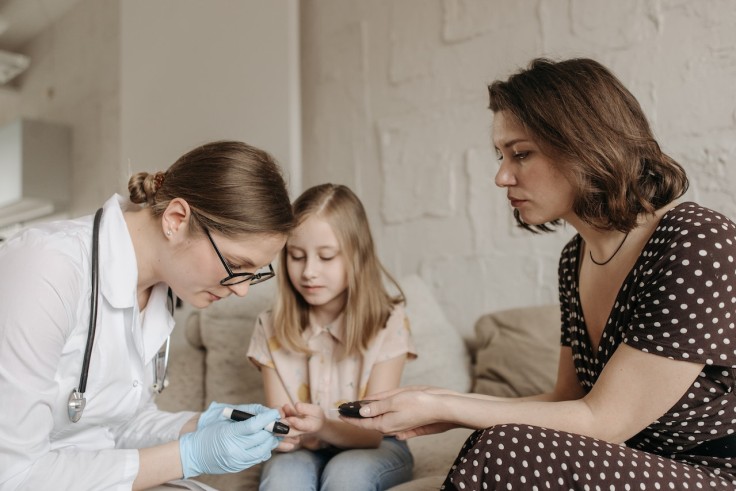
A two-year-old girl was diagnosed with Type 1 Diabetes, and her mom hoped that she had recognized her daughter's habits that were already symptoms of having the disease. Thus, she's sharing to raise awareness.
It all started in May of this year when Ashley Henschen, mother of Layla, noticed some new habits of her daughter. The little girl kept "chugging" water, two cups each time, and was constantly urinating, causing diaper change every 30 minutes.
The mom from Indianapolis told Today they thought it was just because it was summer and the heat was making her thirsty. However, seeing her daughter frequently in the pantry and grabbing snacks was also unusual. She was constantly thirsty and hungry at the same time. They also brushed this sign off and thought it was a "new developmental phase."
Beyond all these, Layla was also irritable most of the time, but they thought the attitude shift was just because of the "terrible twos."
Unfortunately, they missed it and later discovered that all these were already symptoms of the little girl having Type 1 Diabetes.
Diabetic Ketoacidosis
After two weeks of Layla soaking through her diapers and Ashley changing her bedding every morning, the mom had enough and decided to have her daughter checked with their pediatrician.
The nurse demanded that Layla be brought in immediately. After a urine test, doctors found that she had elevated blood glucose levels and diagnosed her with diabetes.
"It was never a thought in my mind. I was so confused. They said (her blood sugar) is this high, you need to rush to Riley (Hospital for Children) right now; and they talked about her being (in) the pediatric intensive care unit, and it was just such an overwhelming experience," Ashley recalled.
She added, "They were like, 'How did you catch this? When we see patients come in with this high blood sugar, usually it's to the point where they're going into a diabetic coma.' They said it was diabetes. ... I knew Type 1 was worse, and when they said Type 1, it was just the most shocking thing."
They took their little girl to the doctor at the right time.
The doctors ran more tests on Layla and discovered she was suffering from diabetic ketoacidosis.
The Centers for Disease Control and Prevention stated this happens when an individual does not have enough insulin, which converts sugar into energy. Layla's liver uses fat as fuel, which causes a build-up of ketones and can be dangerous at high levels.
'Trust you motherly'
The kid stayed in the hospital for two days after the diagnosis, and while she was there, Ashley and her husband learned how to care for a child having Type 1 diabetes. It was also a relief to see a happier Layla when they were in the hospital, which means that she was getting the right treatment.
Ashley admitted that so many emotions were going through her, and one of those was the difficulty of accepting that her only two-year-old daughter was already insulin-dependent. Yet, she knows that as a mother, she needs to put aside her emotions and prioritize learning to take care of her baby.
There have been changes ever since. Layla now wears a blood glucose monitor on her arm, delivering real-time blood sugar readings to her parents' phones. Through this tool, they don't have to finger-poke her every time before meals to check her sugar.
If before she was just used to getting a snack when hungry, now Ashley needs to read the labels first to see the amount of carbs in it and if her daughter might need an insulin shot to enjoy the food.
To make insulin shots a lot more fun for the little girl, they give her a high-five after the injections. Ashley said it is quite "crazy" witnessing daily "a 2-year-old that's so strong and brave."
It was also a relief that they did not need to restrict her from food, especially the sweet ones, even when she grows up. It will just require more insulin, and they are okay with that. At least Layla would not be left out, and she will be able to have what her friends are having.
Ashley hopes that in sharing their story, parents will be able to seek help if they notice something wrong with their child. To mothers, she said, "trust your motherly."
Director of the Pediatric Diabetes Program at Riley Hospital for Children, Dr. Tamara Hannon, stated that Type 1 diabetes is due to insulin deficiency, and the most common cause of it is autoimmune. She encourages parents to immediately have an appointment with their pediatrician if symptoms like Layla's are noticed. She added that a simple blood test could quickly diagnose diabetes.